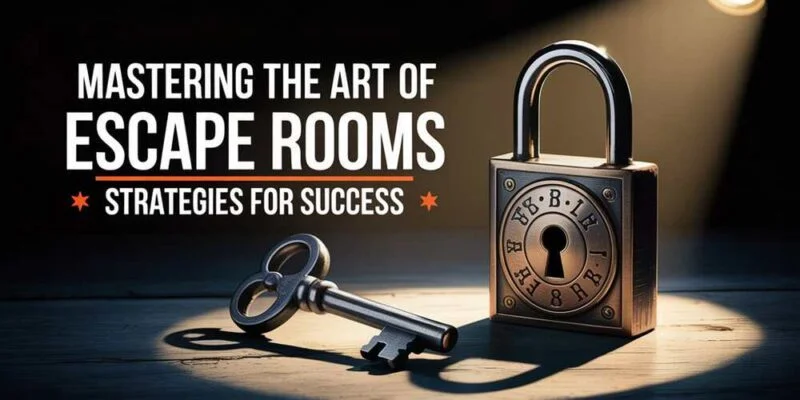Escape rooms have surged in popularity as thrilling, immersive experiences that challenge teams to solve puzzles, uncover hidden clues, and escape before time runs out. Whether you’re a first-timer or a seasoned enthusiast, mastering escape rooms requires strategy, teamwork, and quick thinking. Here’s how you can improve your chances of success and make the most of your next adventure.
1. Assemble the Right Team
Success in an escape room hinges on collaboration. A well-balanced team with diverse skills—logic, creativity, attention to detail, and leadership—can tackle challenges more effectively. Ideally, keep your group between 4-6 people to avoid overcrowding and ensure everyone contributes.
2. Communicate Clearly
Constant communication is key. Share every discovery, no matter how small it seems. What may appear insignificant to one person could be the missing piece for another. Use clear, concise language to avoid confusion, and listen actively to teammates’ ideas.
3. Stay Organized
Escape rooms are filled with clues, locks, and puzzles. To prevent chaos:
- Categorize clues (numbers, symbols, colors, etc.).
- Assign roles (one person can manage found keys, another can track codes).
- Keep the space tidy—misplaced items can lead to overlooked solutions.
4. Think Outside the Box
Escape rooms thrive on creativity. If a puzzle seems unsolvable, consider alternative interpretations:
- Look for hidden messages (backward writing, UV light clues).
- Check under objects, inside books, or behind paintings.
- Combine seemingly unrelated clues to form a solution.
5. Manage Time Wisely
With typically 60 minutes to escape, time management is crucial:
- Don’t linger too long on one puzzle—if stuck, move on and revisit later.
- Assign a timekeeper to provide updates (e.g., “30 minutes left!”).
- Prioritize puzzles that unlock new areas or provide essential tools.
6. Use Hints Strategically
Most escape rooms offer limited hints. Use them wisely:
- Ask for a hint only after exhausting all ideas.
- Request nudges rather than full solutions to maintain the challenge.
- Designate one person to request hints to avoid duplicate clues.
7. Stay Calm Under Pressure
Panic leads to rushed decisions and overlooked clues. Maintain a calm mindset:
- Take deep breaths if frustration builds.
- Encourage teammates and keep morale high.
- Remember, it’s about fun—win or lose, the experience is the reward.
8. Learn from Every Game
After each escape room, debrief with your team:
- Discuss what worked and what didn’t.
- Analyze puzzles that stumped you for future improvement.
- Celebrate successes, whether you escaped or not!
Final Thoughts
Escape rooms are designed to test your problem-solving skills, teamwork, and creativity. By applying these strategies, you’ll not only increase your chances of escaping but also enhance the overall experience. So gather your team, sharpen your minds, and dive into your next escape room adventure with confidence!











